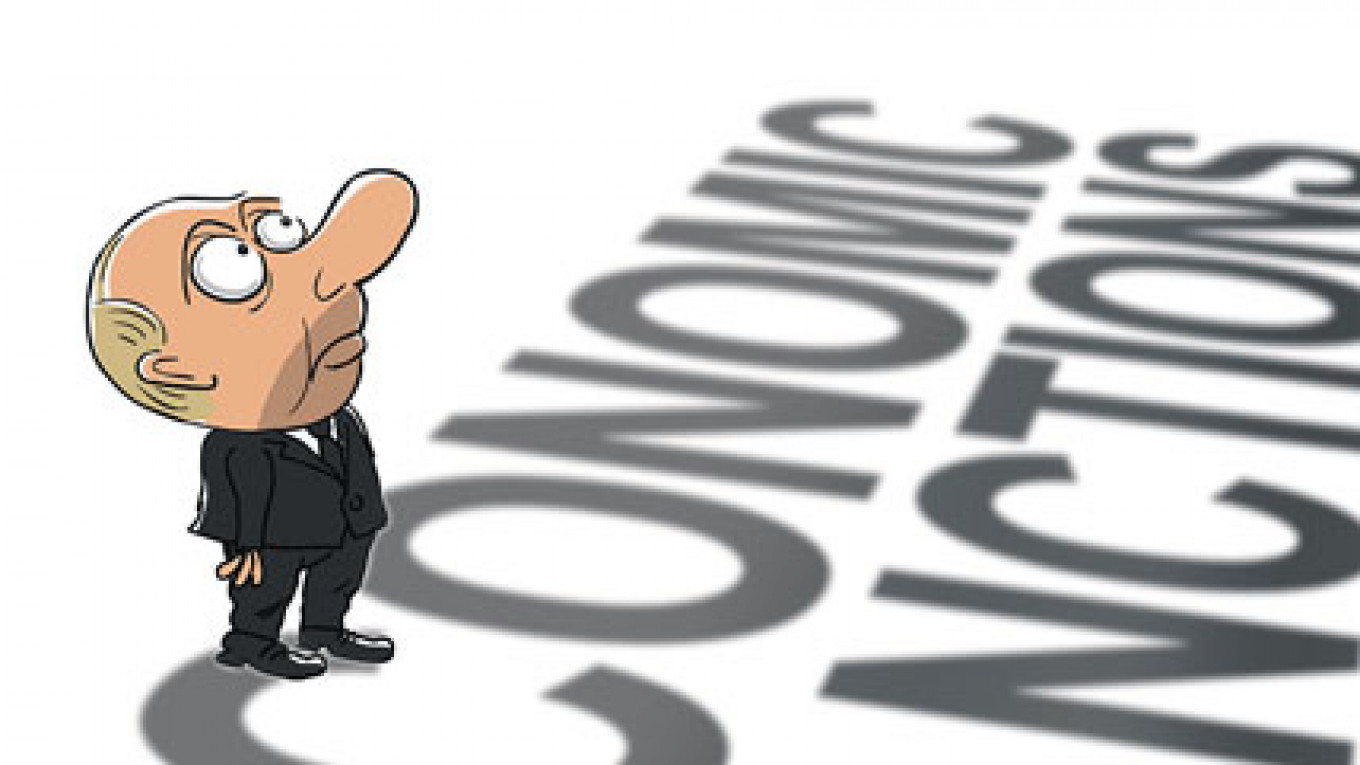Since the escalation of crisis in Crimea last weekend, there has been a lot of speculation about possible sanctions being imposed against Russia by Western countries. The usual format of sanctions is to block trade and capital flows, which then cause damage to the economy and undermine support for the government. Many politicians in the U.S. and European Union have been quick to point out that this strategy has worked well in such countries as Iran and would, if applied to Russia, punish the country for its perceived role in Ukraine.
The real fallout from a prolonged conflict in Ukraine will be self-inflicted. It will likely result in a drop in much-needed investment capital and an acceleration of capital flight.
Imposing restrictions against Russia that were similar to those used in Iran would cause direct damage to the global economy, especially in the EU. In addition, there is actually no need for sanctions to undermine economic growth. That is happening anyway, and the increasingly negative perception of Russia by foreign investors, exacerbated by the country's assumed role in the Ukrainian crisis, threatens to choke off the flow of investment capital desperately needed to boost growth and diversification in the economy.
Russia is the world's largest energy exporter. The country is also the largest exporter of industrial metals and a significant supplier of wheat. Placing Iran-style sanctions on exports, or even the mechanisms by which exporters get paid for their product, would quickly result in a sharp rise in commodity prices and damage the still-fragile global recovery prospects.
What about restricting imports? Russia is the fifth-largest consumer market in the world, falling just behind Germany. Last year, the country imported almost $350 billion worth of goods, which was made up of mostly consumer goods, food, medicines and machinery. About half came from the EU, and most of that was sourced in Germany. Restricting imports of consumer goods would certainly cause inconvenience in Russia but would be much more financially painful for suppliers, many of whom count Russia as their biggest customer. Taking the argument further, any slowdown in imports could act as a catalyst for much-needed import substitution, although that process would take a long time — much longer than any sanctions regime might last.
Economic sanctions would simply be too risky for the EU. The more likely route, if sanctions are actually applied, is to impose travel restrictions for senior Russian officials to the EU and U.S.. This, again, is a nuisance and inconvenient, but with a negligible net impact on the domestic economy.
The real potential damage to Russia's economic future is self-inflicted. The real fallout from a prolonged conflict in Ukraine, or even of a worsening of the already negative international perception of Moscow's role in the affairs of its neighbor, may be to radically slow the inflow of much-needed investment capital while capital outflows accelerate.
Last year, Russia scored a spectacular success in attracting $94 billion worth of foreign direct investment according to a report compiled by the United Nations and released in mid-February. That was a jump of 83 percent over the previous year and placed Russia third in the table behind China, which attracted $127 billion, and the U.S. with $159 billion. Some of the high figure was due to the BP investment into Rosneft as part of the deal to sell TNK. But the success of Russia's Direct Investment Fund, which attracted about $10 billion of fresh commitment in 2013, is also an important factor, The fund is well-placed to repeat that success in the coming years.
That money is critical if the country is to pull out of the current growth slump and achieve the targeted annual growth rate of 4 to 5 percent. Last year, the economy grew at just under 1.3 percent, and the macro data published for January suggests the annualized rate has slowed further, possibly to less than 1 percent. While some government officials are talking optimistically about a bounce in the economy from the spring or in the second half of the year, others are more realistic. Despite the fact that the weak ruble and high oil price are boosting the revenues of the federal budget, oil wealth is no longer capable of delivering higher growth. The combination is certainly helping to improve the national balance sheet, but it is definitely not a growth driver.
It is now widely accepted that Russia needs a new economic model — one based on increased investment into infrastructure and key industries to create greater diversification. Last year's boost to inward investment was a great start and justifiably led to optimism that there was finally progress in key indicators, such as moving up in the rankings in the World Bank's Ease of Doing Business survey. It would certainly be a major setback if a prolonged standoff in Ukraine and deterioration in relations with the EU and the U.S. leads to a sharp reversal in the foreign capital inflows. That would certainly impair the country's ability to create the much-needed growth driver and would slow the diversification process.
But attracting foreign capital is only part of the story, of course. Russia also needs to persuade its own citizens to keep their money at home and to invest in their own country's future. Capital flight is a catch-all description that combines normal trade and capital flows with individuals' money being exported out of the country, which is estimated to be about one-quarter of total capital flight. In 2013, total capital flight was $62.7 billion. This means that about $15.5 billion, or 50 percent more than the Russia's Direct Investment Fund attracted from big investment funds in the Middle East and Asia, is money that individuals prefer to save or spend elsewhere rather than at home. Between 2008 and the end of 2013, capital flight totaled $420 billion. Applying the same formula suggests that more than $100 billion of that was from individuals.
Although only two months into 2014, this year is already shaping up to be another big one for capital flight. The total for January was $17 billion, or just greater than the $16.6 billion reported for the fourth quarter of 2013. Given the ruble's weakness and growing crisis in Ukraine, the total for February is expected to have been higher. March could be even worse if the Central Bank is unable to stabilize the currency and the standoff in Crimea escalates.
Analysts are spending a lot of time arguing who is responsible for the crisis in Ukraine. But let's hope that some part of the consideration over what happens next will be an awareness of the effect on capital flows, both inward and outward. The threat of sanctions is the least of Russia's problem when it comes to the economy. It will be its own actions that will determine where the economy goes from here.
Chris Weafer is senior partner with Macro Advisory, a consultancy advising macro hedge funds and foreign companies looking at investment opportunities in Russia.
A Message from The Moscow Times:
Dear readers,
We are facing unprecedented challenges. Russia's Prosecutor General's Office has designated The Moscow Times as an "undesirable" organization, criminalizing our work and putting our staff at risk of prosecution. This follows our earlier unjust labeling as a "foreign agent."
These actions are direct attempts to silence independent journalism in Russia. The authorities claim our work "discredits the decisions of the Russian leadership." We see things differently: we strive to provide accurate, unbiased reporting on Russia.
We, the journalists of The Moscow Times, refuse to be silenced. But to continue our work, we need your help.
Your support, no matter how small, makes a world of difference. If you can, please support us monthly starting from just $2. It's quick to set up, and every contribution makes a significant impact.
By supporting The Moscow Times, you're defending open, independent journalism in the face of repression. Thank you for standing with us.
Remind me later.








